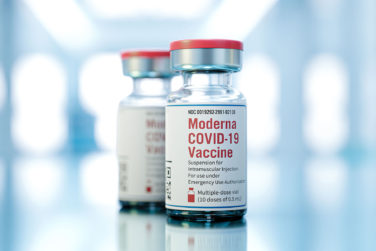A lot of big, unwieldy trends are impacting today’s $4 trillion healthcare landscape as it heads toward $6 trillion in the next five short years. Driven by affordability, equity, outcomes, and technology, it’s clear health companies must go all-in on healthcare consumerism. Today’s consumers just face too much pressure, including rising insurance premiums, 6 in 10 adults with a chronic condition, pandemic fatigue, and 50 million Americans with a mental health condition.
As consumers navigate what’s become an out-of-pocket ecosystem, healthcare has become one of the biggest financial burdens they face: over a third of money raised on GoFundMe goes toward medical expenses and a 65-year-old couple retiring today is expected to have over $300,000 for future health costs. Healthcare consumers are being forced to take a close look at their healthcare budgets, and once they find themselves responsible for spending health dollars out of their own wallets, they become healthcare activists.
Complicating the affordability conundrum are health disparities, inequities, and political and social determinants of health crisscrossing the care delivery system. Medical deserts mean babies born six subway stops apart in New York City have a nine-year difference in mortality, and the life expectancy of a Black Chicagoan is nearly 10 years lower than their White counterparts.
The Impact of Healthcare Consumerism
An outgrowth of the consumerization of healthcare has been a surge in technology. From CareTech to FinTech to MedTech to AgeTech these disruptors are leveraging blockchain, metaverse, AI, and remote monitoring—and they can’t get funded fast enough. But these software point solutions aren’t the silver bullet. There’s too much grandstanding with technology for technology’s sake…case in point: 90,000 health apps were introduced last year to bring the total over 350,000! Digital health needs to be more purpose driven with the ability to help consumers take ownership of their individual health.
Probably the most impactful consequence of health consumerism has been reimagination of customer experiences (CX). For the most part, steps along the healthcare customer journey have been scattered with complexity, bureaucracy, points of friction, and confusion. In fact, 9 out of 10 consumers struggle to understand mind-numbing healthcare information. Taking lessons learned from retail and eCommerce, smart health brands are building relationships of trust by constructing experiences to drive an integrated communication stream that deepens engagement, anticipates next-best-actions, and improves loyalty.
As healthcare consumers get smart about comparing prices, differentiating among quality indicators, posting reviews, and better defining convenience, payers, providers, and pharma must meet the challenges of making consumer health more accessible, equitable, affordable, and needs based. For consumer-centric organizations this means knowing what truly matters to people. The endgame is giving customers what they want by making healthcare simple, being there when they need you, communicating honestly, and displaying empathy—all of which is crucial at a time when only 52% of consumers trust the industry to do the right thing when it comes to their healthcare!
Source:
“The Big Picture: Healthcare 2022.” Wunderman Thompson. www.wundermanthompson.com/expertise/health.









